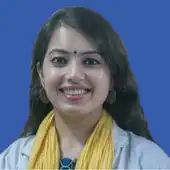Depression is a severe symptom of many disease conditions characterized by persistent sadness, hopelessness, and a loss of interest in daily activities.
| Causes | Chronic Medical Conditions, Parkinson's Disease, Hormonal Imbalances |
|---|---|
| Remedies | Maintain healthy lifestyle, Self-Assesment, Therapies |
| Preventive Options | Maintain Support System, Adressing Substance Abuse, Manging Stesss |
| Treatment Options | Medications(Antidepressants, SSRIs, TCA), Electroconvulsive therapy |
| Specialist | Psychologist |
Depression is a common mental health disorder characterized by persistent feelings of sadness, hopelessness, and a loss of interest in activities. It can also cause physical symptoms such as changes in appetite, sleep, and energy levels. Depression can be caused by a combination of factors, including genetic, biological, environmental, and psychological factors. Some people may be more vulnerable to depression due to inherited traits, while others may develop depression as a result of stressful life events such as the loss of a loved one, financial problems, or relationship issues.

Symptoms of depression can vary from person to person, but common symptoms are mentioned below.
There are several different types of depression that have been identified by mental health professionals. Some of the most common types include
There are several medical conditions that can cause depression, including:
There are several methods for diagnosing depression, including:
Treatment for depression can include:
Preventive measures for depression can include:
It's important to seek help from a healthcare professional if you're experiencing symptoms of depression that are affecting your daily life, relationships, or ability to function. You should also see a doctor if you're experiencing any of the following:
If you have depression and are concerned about your health, it is important to seek immediate medical attention from a qualified depression doctor. A doctor specializing in treating depression, such as a Psychologist, would be the right health professional to consult.
Here is a list of Top verified doctors for depression. You can book an appointment with one to start your depression treatment today.

Sir HN Reliance Foundation Hospital and Research Centre, Mumbai
Rs. 2,000 Consult Fees

Sitaram Bhartia Institute of Science and Research, New Delhi, Delhi NCR
Rs. 2,500 Consult Fees
A hospital can provide various services to help diagnose and treat your depression. If you are experiencing depression In that case, it is important to visit a depression hospital for a proper diagnosis and treatment plan.
Check a list of Top Hospitals for depression treatment.
Multi Speciality Hospital
Established in 1918
🛌345 Beds

Multi Speciality Hospital
Established in 1940
🛌220 Beds

Super Speciality Hospital
Established in 1950
🛌350 Beds
Frequently asked questions and answers about depression.
What are the symptoms of depression?
Symptoms of depression can include feelings of sadness, hopelessness, and helplessness, loss of interest in daily activities, changes in appetite and sleep patterns, difficulty concentrating, and thoughts of suicide or self-harm.
What are the main causes of depression?
The four main causes of depression can include genetic predisposition, brain chemistry imbalances, stressful life events, and underlying medical conditions.
How is depression treated?
Treatment for depression can include medication, therapy, electroconvulsive therapy (ECT), light therapy, and lifestyle changes.
What is in a depression?
Depression can involve various symptoms such as persistent sadness, loss of interest or pleasure in activities, changes in appetite or sleep patterns, feelings of worthlessness or guilt, and difficulty concentrating or making decisions.
Can depression be prevented?
Preventive measures for depression can include maintaining a healthy lifestyle, managing stress, building a support system, identifying and addressing underlying conditions, recognizing and addressing substance abuse, addressing early symptoms, and regular check-ups with mental health professionals.
What helps people cope with depression?
People can cope with depression through various methods such as therapy, medication, lifestyle changes such as exercise and healthy eating, social support, and self-care activities such as hobbies or relaxation techniques. It's important to seek help from a healthcare professional to determine the most effective treatment options for your specific situation.
Credihealth is an online healthcare portal for all your hospital appointments, diagnostic test bookings, ordering medications, or homecare services. If you have any inquiries, our in-house medical experts can help solve them and guide you to the best specialist in the India.